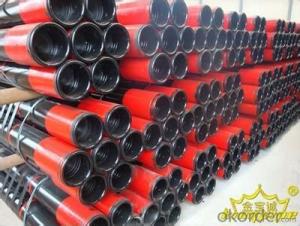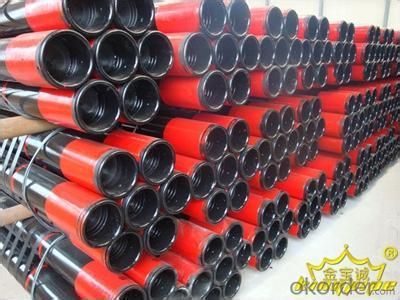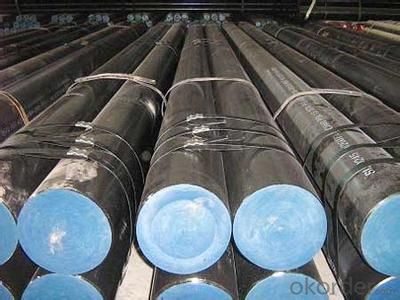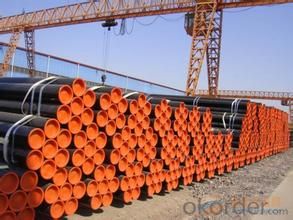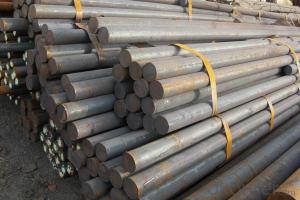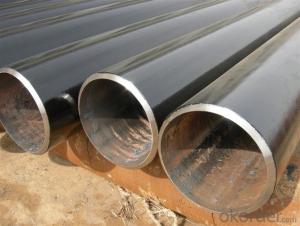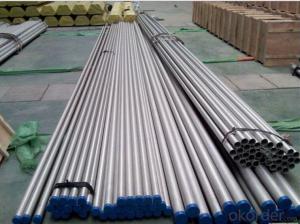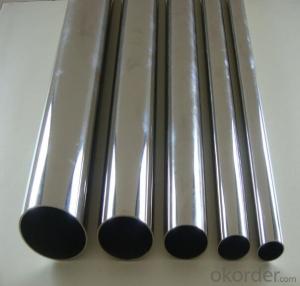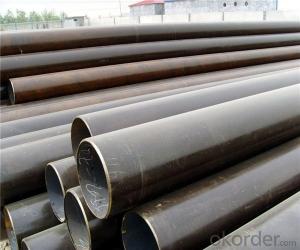Steel Pipe with High Quality and so on
- Loading Port:
- Tianjin
- Payment Terms:
- TT OR LC
- Min Order Qty:
- 35 m.t.
- Supply Capability:
- 8000 m.t./month
OKorder Service Pledge
OKorder Financial Service
You Might Also Like
Product Description:
1、Structure of Steel Pipe Q345 Descrption:
steel welded pipe is actually a cover term, covering a wide range of alloy and making them suitable for different attributes that are used in a very wide and large numbers of different industries. Stainless steel pipe is resistant to erosion, highly flexible, powerful, easy to use, and can be done in distinct approaches, which means that more and more stainless steel was used as a construction material for large-scale, high impact buildings. It can be molded, rolling, and it can create amazing shapes to make it perfect, It is used as experimental buildings, The use of steel pipe welding of large stainless steel covers other examples.
2、Main Features of the Steel Pipe Q345:
·Highly demanded
·Durable
·Reliable
·resist corrosion
·reasonable price
3、Steel Pipe Q345 Images:
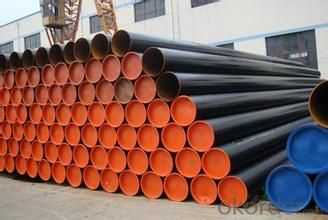
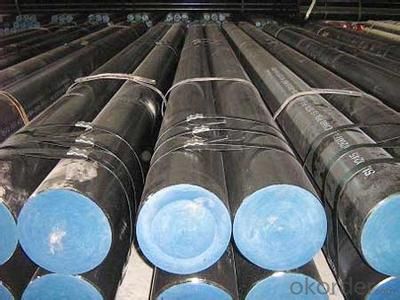
4、The Steel Pipe Q345 Specification:
Standard JIS, DIN, ASTM
JIS G3445-2006, JIS G3444-2006, JIS G3446-2004, DIN EN 10216-1-2004, DIN EN 10217-1-2005, DIN EN 10305, ASTM A106-2006, ASTM A53-2007, ASTM A789-2001, ASTM A1020-2002, ASTM A179-1990, ASTM A199Grade Cr-Mo alloy, Mo, ST35-ST52, Q195-Q345, CrNi alloy
15CrMo, 10CrMo910, 30CrMo, 15Mo3, 16Mo, St37, St52, St42, St45, Q235, Q345, Q195, Q215, Cr17Ni8, 1Cr13Mn9Ni1NThickness 2 - 50 mm Section Shape Round Outer Diameter 10 - 900 mm Secondary Or Not Non-secondary Application Structure Pipe Technique EFW Certification API Surface Treatment Paint Special Pipe API Pipe Alloy Or Not Non-alloy
Specifications
1.W.T from 2mm to 70mm
2.OD from 10 to 1200mm
3.product by our own factory
4.on time dilivery
5、FAQ of Square Tube:
Our products are manufactured strictly according to national and internaional standard, and we take a test
on every pipe before delivered out. If you want see our quality certifications and all kinds of testing report, please just ask us for it.
Guaranteed:
②How about price?
Yes, we are factory and be able to give you lowest price below market one, and we have a policy that “ for saving time and absolutely honest business attitude, we quote as lowest as possible for any customer, and discount can be given according to quantity”,if you like bargain and factory price is not low enough as you think,one.
③Why should you chose us?
Chose happens because of quality, then price, We can give you both.Additionally, we can also offer professional products inquiry, products knowledge train(for agents), smooth goods delivery, exellent customer solution proposals.Our service formula: good quality+good price+good service=customer’s trust
- Q: What are the different types of steel pipe caps?
- There are several different types of steel pipe caps, including threaded caps, socket weld caps, butt weld caps, and flanged caps.
- Q: Can steel pipes be used for underground water supply systems?
- Indeed, underground water supply systems can utilize steel pipes. These pipes, being robust and resistant to corrosion, are well-suited for subterranean purposes. They possess the ability to endure high water pressure, facilitate effective water flow, and exhibit a lengthy lifespan. Nevertheless, it is imperative to guarantee the steel pipes are adequately coated and safeguarded against corrosion to avert any water supply contamination. Furthermore, due to their heavier nature in comparison to alternative materials, additional support may be necessary during installation. To identify any potential concerns and avoid leaks or harm to the underground water supply system, proper maintenance and regular inspections are of utmost importance.
- Q: What are the different types of steel pipe joints for underwater applications?
- There are various types of steel pipe joints commonly used for underwater applications, including buttweld joints, socket weld joints, and threaded joints. These joints provide secure connections and maintain the integrity of the pipeline system in underwater environments.
- Q: Is hot dipped plastic pipe steel?
- Hot dip plastic composite pipes used in coal mine gas drainage, ventilation system, fire water system, central air conditioning HVAC piping circulating water, industrial water supply and drainage, water supply and drainage life, conveying gas and other gases, power threading, chemical pipelines and water disposal pipe etc..
- Q: What are the common materials used for pipe fittings in steel pipes?
- The common materials used for pipe fittings in steel pipes include carbon steel, stainless steel, and alloy steel. Carbon steel pipe fittings are widely used due to their affordability, strength, and durability. They are suitable for various applications, including oil and gas, petrochemical, and water distribution systems. Stainless steel pipe fittings are highly resistant to corrosion and are commonly used in industries that require a high level of hygiene, such as food and beverage and pharmaceutical industries. Alloy steel pipe fittings are composed of multiple elements, such as chromium, nickel, and molybdenum, to enhance their strength and resistance to corrosion. These fittings are often used in high-pressure and high-temperature applications, such as power plants and chemical plants. Overall, the choice of material for pipe fittings in steel pipes depends on the specific requirements of the application and the environment in which they will be used.
- Q: What does cathodic protection of steel tubes mean?
- There are two ways of cathodic protection: sacrificial anode, cathodic protection and impressed current cathodic protection.Sacrificial anode: connect a living metal or alloy to a protective metal to form a galvanic cell. The active metal replaces the protected metal to lose electrons so that the protected metal is not corroded.
- Q: Can steel pipes be used in high-pressure applications?
- Yes, steel pipes can be used in high-pressure applications. Steel pipes are known for their strength and durability, making them suitable for handling high-pressure fluids or gases in various industries such as oil and gas, chemical processing, and power generation. They are designed to withstand the stress and pressure exerted on them, ensuring reliable performance and safety in high-pressure environments.
- Q: How do steel pipes resist corrosion?
- Steel pipes resist corrosion through a process called passivation, wherein a protective layer of oxide forms on the surface of the steel, preventing further oxidation and corrosion. Additionally, the pipes can be coated with anti-corrosive materials or undergo treatments such as galvanization or lining to enhance their resistance against corrosion.
- Q: What are the different methods of cutting steel pipes?
- There are several different methods of cutting steel pipes, including manual methods such as hacksaw or pipe cutter, as well as mechanical methods like band saw, plasma cutting, or laser cutting. Each method has its own advantages and is chosen based on factors such as the thickness of the pipe, precision required, and production volume.
- Q: How are steel pipes used in automotive manufacturing?
- Automotive manufacturing extensively employs steel pipes for a multitude of purposes. The exhaust system represents one of the principal functions of steel pipes in this industry. In vehicles, the exhaust system is accountable for securely eliminating harmful gases generated during the combustion process. Steel pipes are employed in fabricating the exhaust manifold, which collects exhaust gases from the engine cylinders and directs them towards the exhaust pipe. Additionally, steel pipes are also utilized in constructing the chassis and frame of vehicles. The chassis offers structural support and aids in upholding the overall strength and stability of the vehicle. Due to their exceptional strength and durability, steel pipes are the optimal choice for manufacturing the chassis and frame. These pipes are frequently welded together to form a rigid and robust structure capable of withstanding diverse forces and impacts. Furthermore, steel pipes find application in the suspension system of automobiles. The suspension system is responsible for delivering a comfortable and smooth ride by absorbing shocks and vibrations. Steel pipes are employed in manufacturing suspension components such as control arms, tie rods, and sway bars. These components contribute to maintaining the stability, handling, and overall performance of the vehicle. Moreover, steel pipes are utilized in the fuel system of automobiles. They are responsible for transporting fuel from the fuel tank to the engine. These pipes necessitate resistance to corrosion and possess high tensile strength to guarantee the safe and efficient delivery of fuel. In conclusion, steel pipes play a pivotal role in automotive manufacturing. They are utilized in diverse applications including the exhaust system, chassis and frame construction, suspension system, and fuel system. The incorporation of steel pipes in these areas ensures the durability, strength, and performance of vehicles while simultaneously upholding safety and efficiency.
Send your message to us
Steel Pipe with High Quality and so on
- Loading Port:
- Tianjin
- Payment Terms:
- TT OR LC
- Min Order Qty:
- 35 m.t.
- Supply Capability:
- 8000 m.t./month
OKorder Service Pledge
OKorder Financial Service
Similar products
Hot products
Hot Searches
Related keywords
